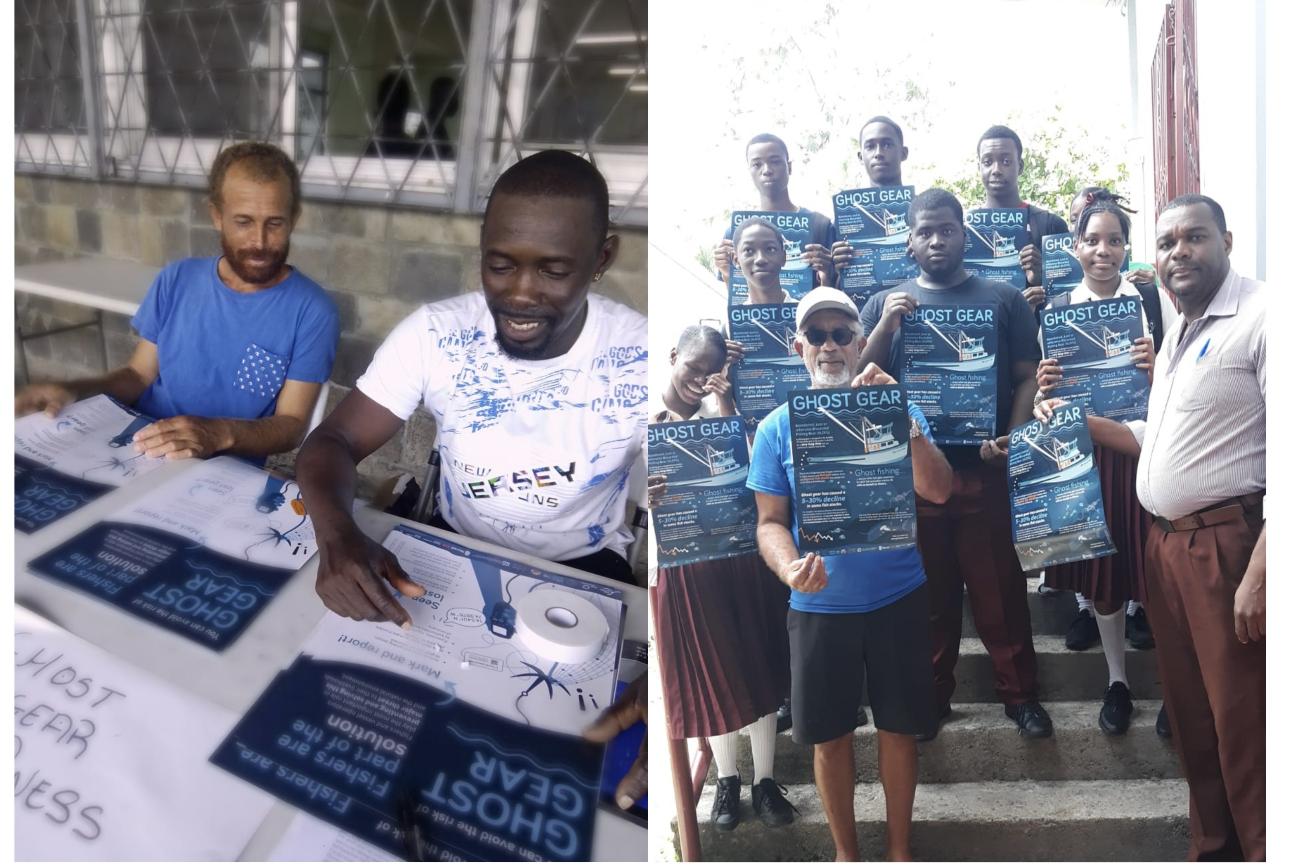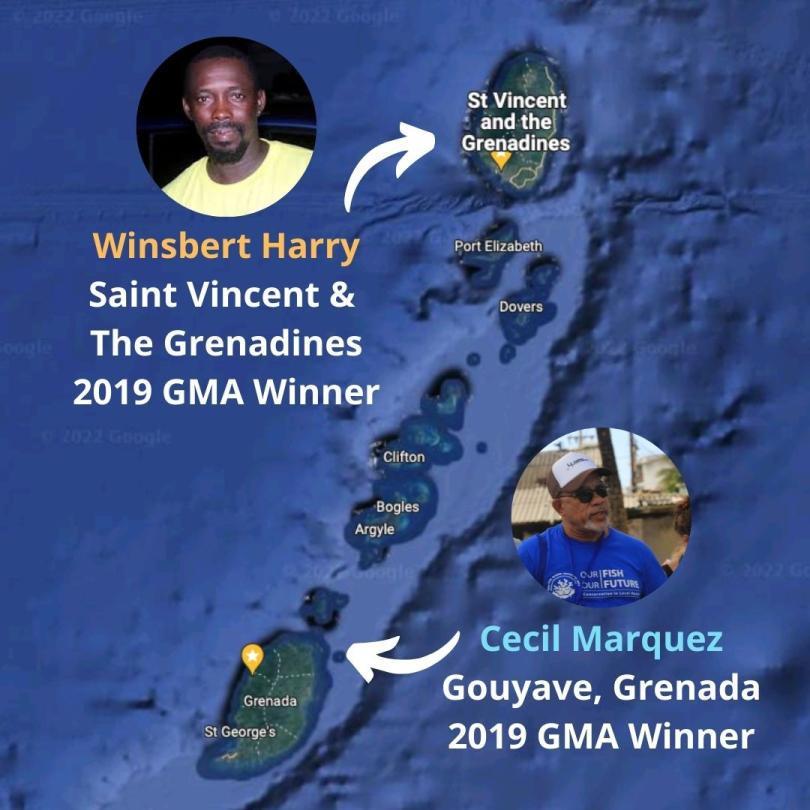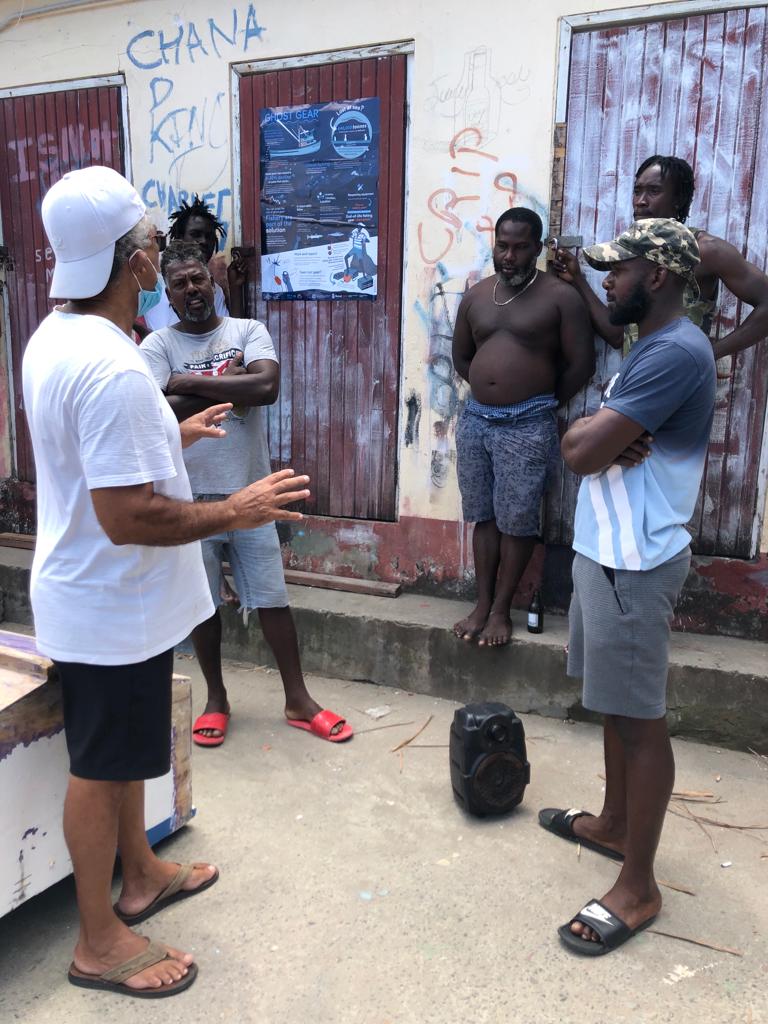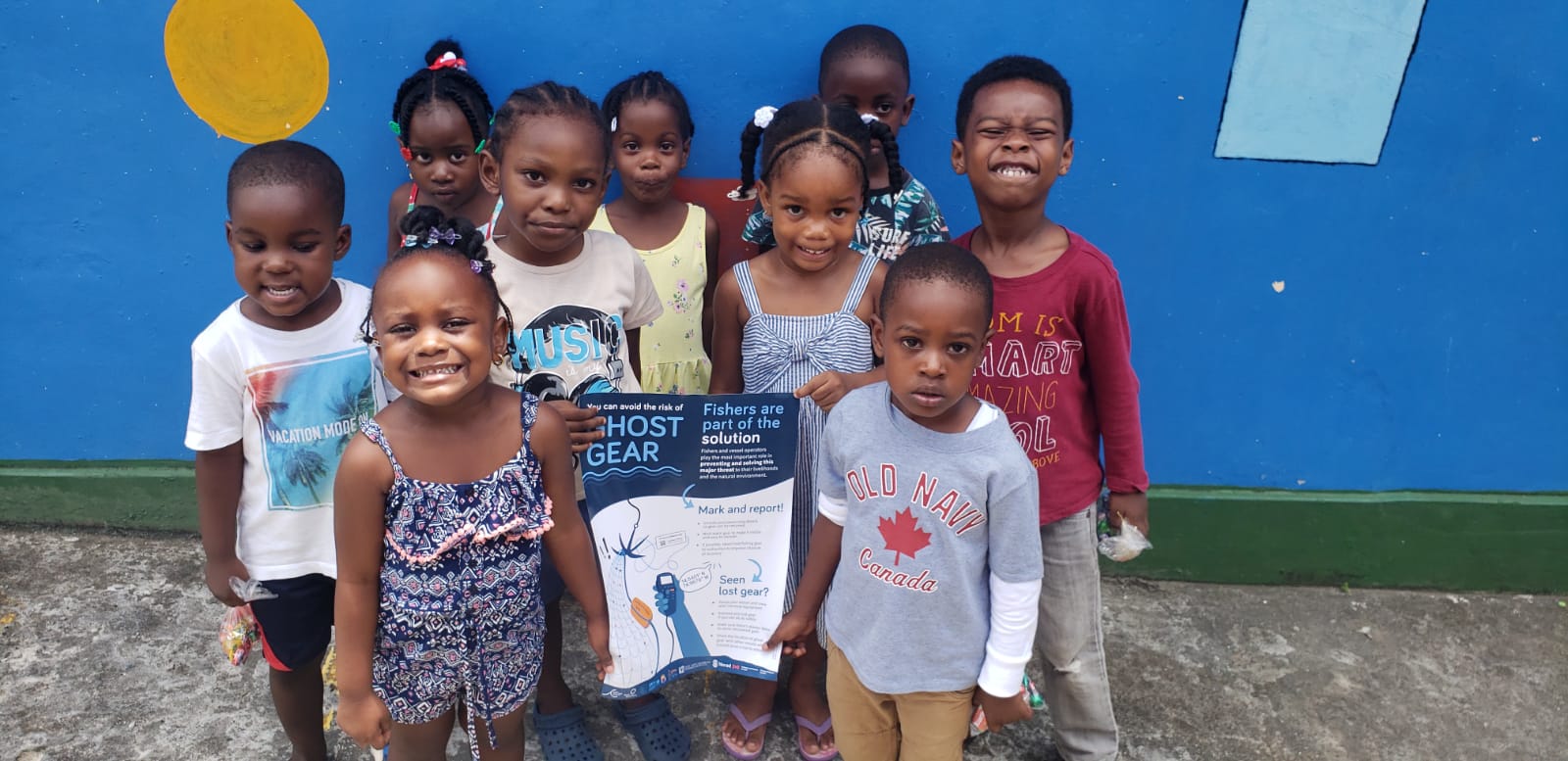
Written by Fadilah Ali, Assistant Executive Director, Gulf and Caribbean Fisheries Institute
Abandoned, lost and otherwise discarded fishing gear (ALDFG) is one of the most harmful forms of marine debris. Commonly referred to as ghost gear, it can continue to catch fish targeted by fishers and it can entangle other aquatic species and damage marine and nearshore habitats. Each year, tens of thousands of fish traps and pots are lost or abandoned in the world’s oceans due to rough weather and strong currents or conflicts with other fishing vessels. Ghost gear is expensive to replace if lost and hazardous for fishers and marine communities to deal with especially within the Wider Caribbean Region where there is a strong incidence of adverse weather events such as hurricanes and tropical storms. In response to a pressing need for information on this topic, the Gulf and Caribbean Fisheries Institute (GCFI) in partnership with the Global Ghost Gear Initiative (GGGI) developed communication products that seek to share pertinent information about ALDFG and to promote the adoption of best management practices for preventing and reducing the impact of ALDFG. These factsheets were developed and prepared in the major languages of the region: English, Spanish and French through support from Fisheries and Oceans Canada.
To improve the effectiveness of the dissemination of these products, previous Gladding Memorial Award (GMA) Winners were recruited to implement a community based outreach program focused on raising awareness on ghost gear. The Gladding Memorial Award recognizes fishers with an enduring vision and a significant commitment to the sustainable use and long-term conservation of marine resources in the Gulf and Caribbean region. The GMA is a fundamental component of GCFI’s Fisheries for Fishers Initiative which provides capacity and empowers fishers to participate in the regional marine resource governance process. Two of the most recent GMA recipients were selected to pilot this work in the Southern Caribbean (Grenada and Saint Vincent and the Grenadines), with the overall goal being to eventually expand this to other areas within the region.

Equipped with the communication products developed by GCFI and GGGI, the GMA Winners visited all relevant fishing communities, fish houses, fishing cooperatives, fish processing plants, fish markets and other community establishments to erect and distribute communication products. These GMA Winners capitalized on their authority as respected leaders within their local fishing communities to educate communities about ALDFG, and what can be done to reduce fishing gear impacts whilst simultaneously building capacity. During these interactions, the GMA winners were also able to gain insight into existing levels of awareness of the issue of ALDFG within these communities as well as to discuss with their peers other issues, observations and experiences.
Image

| Image

|
Download the Ghost Gear Factsheets
Learn more about the work of the Gulf and Caribbean Fisheries Institute
This article is part of the SSF Highlights series of articles published regularly to the SSF Hub. To read previous SSF Highlights, follow this link.
